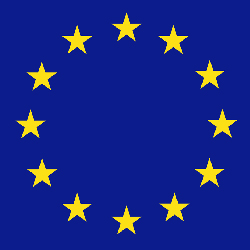The EU’s tax blacklist: three on, three off, nine in all
Chris Hamblin, Editor, London, 29 March 2018

The European Union has adjusted its list of non-co-operative jurisdictions in taxation matters in the wake of promises made by listed jurisdictions that were desperate to be de-listed and an EU assessment of jurisdictions for which no listing decision had yet been taken.
An EU body called the Economic and Financial Affairs Council has removed Bahrain, the Marshall Islands and Saint Lucia from the list and added the Bahamas, Saint Kitts & Nevis and the US Virgin Islands.
It took its decisions ‘without discussion,’ according to the EU. As a result, 9 jurisdictions remain on the EU list: American Samoa, the Bahamas, Guam, Namibia, Palau, Samoa, Saint Kitts & Nevis, Trinidad & Tobago and the US Virgin Islands.
On 5 December, the ECOFIN (Economic and Financial Affairs Council) endorsed the ‘EU list of non-cooperative jurisdictions for tax purposes’ as well as recommendations to the concerned jurisdictions on steps to take in order to get de-listed. It also noted with satisfaction the “meaningful commitments at high political level” made by other jurisdictions and set some guidelines for further work in this area.
On this occasion, the council agreed to ‘put on hold’ the screening process for eight jurisdictions in the Caribbean that had been struck severely by devastating hurricanes in September.
These were Anguilla, Antigua and Barbuda, Bahamas, British Virgin Islands, Dominica, Saint Kitts and Nevis, Turks and Caicos Islands, and the US Virgin Islands. It also decided that the EU’s Code of Conduct Group (which deals with business taxation) “should, by February 2018, pursue further contacts with these jurisdictions, with the view to resolving these concerns by the end of 2018”.
Annex IV of the council’s conclusions of 5 December 2017 indicates that the EU list of non-co-operative jurisdictions for tax purposes “shall be revised by the council at least once a year and endorsed on the basis of a report from the Code of Conduct Group on Business Taxation to the council, indicating the starting date of application of that modification”.
The original blacklist, now much changed, contained the names of 17 jurisdictions, namely: American Samoa; Bahrain; Barbados; Grenada; Guam; South Korea; Macao; the Marshall Islands; Mongolia; Namibia; Palau; Panama; Saint Lucia; Samoa; Trinidad and Tobago; Tunisia; and the United Arab Emirates.
A document from 2nd March reads: “To be noted that all commitments officially taken by jurisdictions, as well as the implementation of the recommendations made by the council in order to address open issues, will be carefully monitored by the Code of Conduct Group, supported by the General Secretariat of the Council, with [the] technical assistance of the European Commission, in order to evaluate their effective implementation.”
The most recent document, prepared by EU officials and dated 8 March, also adds Anguilla, the British Virgin Islands, Dominica and Antigua and Barbuda to a so-called grey list of jurisdictions which are not co-operating with EU anti-tax avoidance standards but which have promised to mend their ways. This grey list includes dozens of jurisdictions from all over the world.
Vladislav Goranov, the minister for finance in Bulgaria, the country that holds the presidency of the council at the moment, said: “I am glad to see more jurisdictions that we listed in December committing themselves to reforming their tax policies in a manner that will remedy our concerns.
“We call on all jurisdictions on the list to do likewise, and on all those that have already made commitments to implement them in a timely manner. Our aim is to achieve optimal tax transparency worldwide.”
The EU says that it is taking steps to improve the ‘transparency’ of the listing process.












